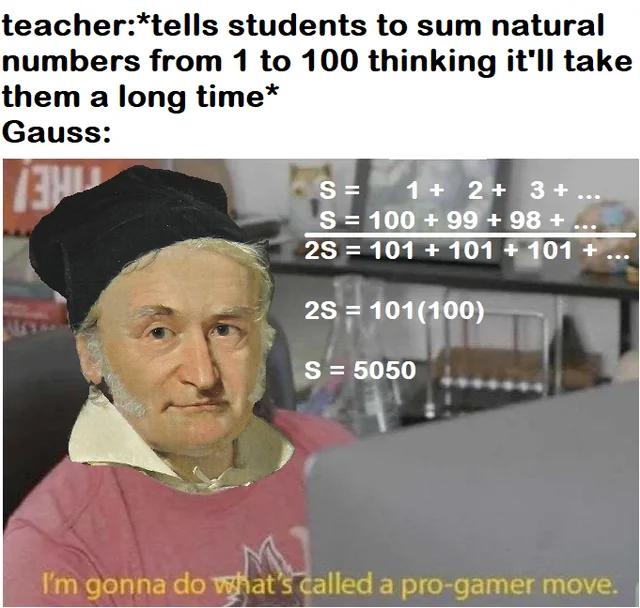this post was submitted on 11 Dec 2023
924 points (98.2% liked)
Science Memes
12417 readers
3808 users here now
Welcome to c/science_memes @ Mander.xyz!
A place for majestic STEMLORD peacocking, as well as memes about the realities of working in a lab.

Rules
- Don't throw mud. Behave like an intellectual and remember the human.
- Keep it rooted (on topic).
- No spam.
- Infographics welcome, get schooled.
This is a science community. We use the Dawkins definition of meme.
Research Committee
Other Mander Communities
Science and Research
Biology and Life Sciences
- [email protected]
- [email protected]
- [email protected]
- [email protected]
- [email protected]
- [email protected]
- [email protected]
- [email protected]
- [email protected]
- [email protected]
- [email protected]
- [email protected]
- [email protected]
- [email protected]
- [email protected]
- [email protected]
- [email protected]
- [email protected]
- [email protected]
- [email protected]
- [email protected]
- [email protected]
- [email protected]
- [email protected]
- !reptiles and [email protected]
Physical Sciences
- [email protected]
- [email protected]
- [email protected]
- [email protected]
- [email protected]
- [email protected]
- [email protected]
- [email protected]
- [email protected]
Humanities and Social Sciences
Practical and Applied Sciences
- !exercise-and [email protected]
- [email protected]
- !self [email protected]
- [email protected]
- [email protected]
- [email protected]
Memes
Miscellaneous
founded 2 years ago
MODERATORS
you are viewing a single comment's thread
view the rest of the comments
view the rest of the comments

Sorry if this is stupid but how to deal with sums to odd numbers ? Won't you have a number left over after pairing all the others?
Add the last number onto the end. So the sum of all numbers between 1 and 101 is 50 pairs of 101 plus one extra 101 and the end. It'd end up being 5050 + 101 or 51x101 or 5151
Nope, because what you're doing is copying the entire sequence, reversing it, and pairing up each element left to right. There's no way to have any leftovers because the original sequence and the new reversed sequence have the same number of elements.
A perhaps less intuitive way of thinking of it is you start with a sequence of 1 up to N, which contains exactly N elements. The sequence from 1 to N and its reverse together contain 2N elements, which is by definition an even number, regardless of whether N is even or odd. Because it's even we can break it into pairs without leftovers.